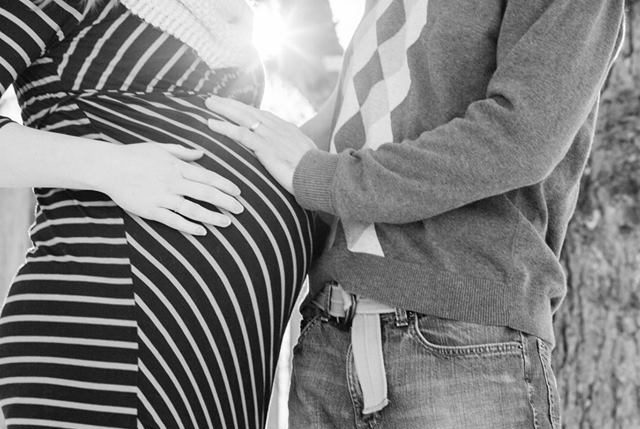Give InKind is honored to feature Lindsey Henke of Pregnancy After Loss Support.
After my first pregnancy ended in the stillbirth of my daughter, the last thing I wanted to do was think about having another child.
I felt like my body had failed me. That I had failed my daughter.
More than anything, though, I knew I wanted to be a parent. To become a mom once more – to a living child – I knew I would have to attempt pregnancy again.
In the early days of my grief, I thought being pregnant again would somehow make losing her easier to bear.
However, pregnancy after loss remains one of the hardest things I have ever done.
There were the months of trying and the negative pregnancy tests. I experienced the grief of loss over and over again.

Photo by Kerry Kresl kerrykreslphotography.com
When I did become pregnant, I was filled with fear that this baby would also die.
I don’t know how I made it through that pregnancy. There was joy, but it was comingled with understandable grief and anxiety.
I do know that having a broad and supportive network helped me hold onto hope that this pregnancy – this baby – would have a different ending.
If you are woman looking to support a woman pregnant again after loss, consider:
Be present – In grief, we appreciate the presence of people. But it is hard to be truly present in grief. Hold her space. Listen with an open heart. Resist the impulse to offer solutions. Respond to her with empathetic ‘um-hums,’ ‘yeah,’ and affirming comments of ‘things are hard for you right now’ and ‘do you want to watch Netflix and eat ice cream?’
Let her lead the way – It is difficult to witness those we love in pain. We want nothing more than to fix things. Know that every mama’s needs during her subsequent pregnancy are different. Following her lead is important. This means realizing that she might not want a baby shower. She may not wish to receive gifts before the baby is born. She might not want to talk about this baby the same way she did her other pregnancies. Or, it might mean that she wants to talk about this baby more – it depends.
Focus on her needs – During pregnancies we have a tendency to focus on the outcome – the baby. We tend to forget about the mother. When you are pregnant again after losing a previous pregnancy, it’s difficult to trust a good outcome. Try focusing on what I would call the nine-month gestation of the mother. Pamper the mom. How is she feeling? Does she need extra support? Would she like a massage? A meal? Shift the focus of the pregnancy away from the baby.
Let her know you are there – During my subsequent pregnancy, I sometimes retreated from family and friends. It wasn’t that I didn’t want them around – it was that I just couldn’t add any more to my plate. I wanted to watch Netflix and eat ice cream. My lovely family and friends supported me. One of my aunts sent me a card every week for years. I loved encouraging texts or Facebook messages. I didn’t always respond, but the messages still came, and I still read every last one.
Incorporate her child that died – Say the name of the deceased child. Understand that this subsequent pregnancy will not replace the baby who was lost. Find ways to remember the baby – memorial jewelry is a lovely gesture, for example.
Hold Hope – During my subsequent pregnancy, another pregnant-again loss mom turned to me. She said: “I have to believe. I just have to believe that this baby will be okay. That this baby will live. I just have to believe. I don’t have another choice." It was the most powerful thing anyone has ever said to me. She gave me the gift of hope. I did not know how to hold onto hope. She held my hope when I couldn’t. If you can do anything for a pregnant-again-after-loss-mom, or say just one thing, let her know that you will hold onto hope for her. That this time, things will be different.
Photograph Courtesy of Lindsey Henke. Used with Permission.
Helpful Products
Give InKind does not provide medical advice, diagnosis, or treatment. We have an affiliate relationship with many of the advertisers on our site, and may receive a commission from any products purchased from links in this article. See Terms & Conditions.



